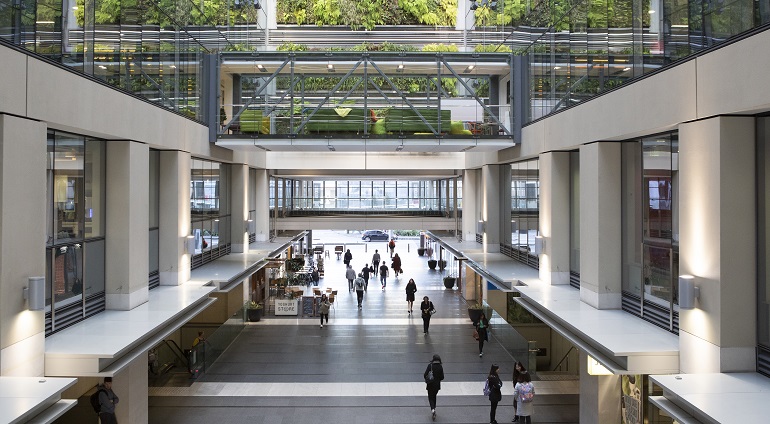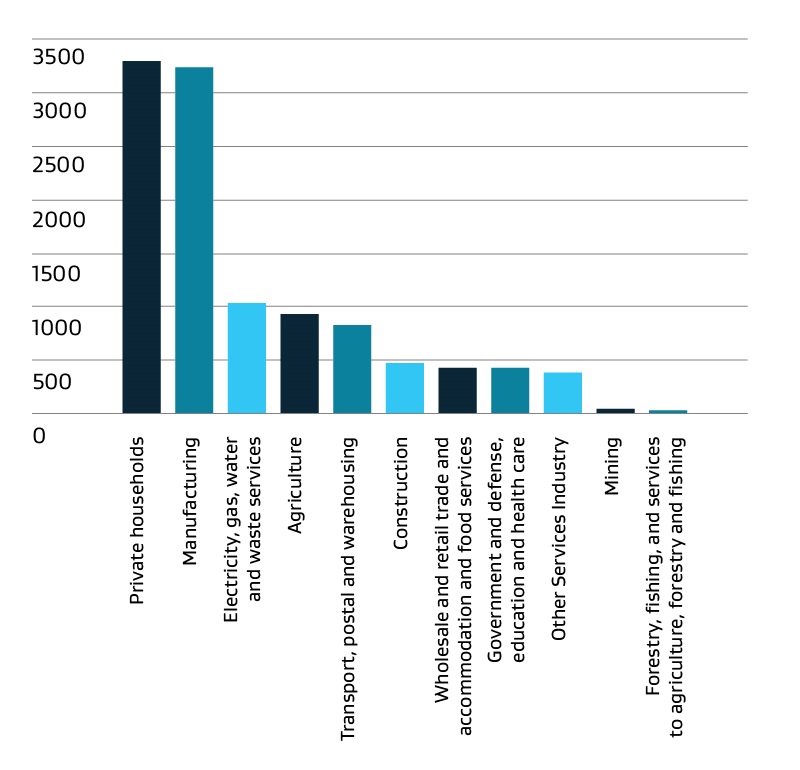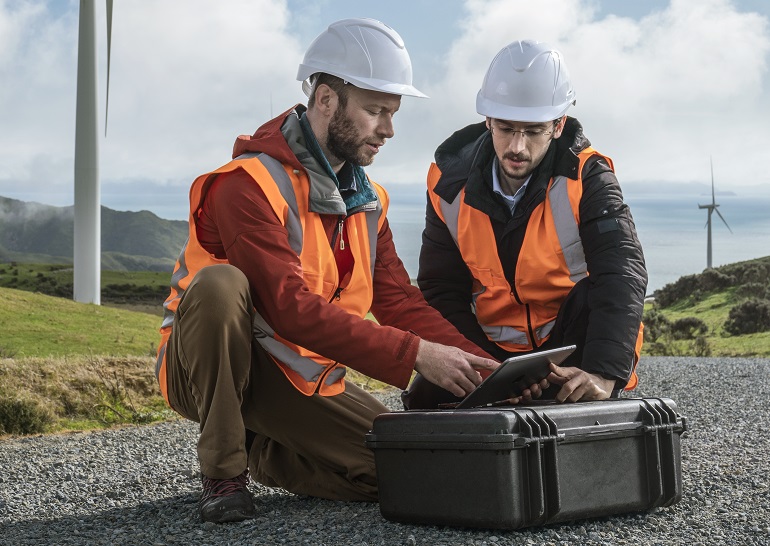Green skills and jobs for a circular economy workforce
If Tāmaki Makaurau wants to grow a circular, regenerative, and decarbonised economy at pace, it needs to grow a skilled work force to power it.
On this page

Photo: Auckland Unlimited
Looking at the spread of talent around the region and within the core and backbone sectors through the lens of green skills, the demand for green talent and green skills is outpacing supply.
For example, within 30 years, Tāmaki Makaurau is projected to grow from a city of over 1.6 million to 2.4 million, requiring another 300,000 dwellings and 250,000 plus jobs. Dynamic and adaptive planning will be key to achieving the region’s net zero emission target by 2050, alongside the need to build resilience to climate change. This presents an opportunity to develop much-needed green skills and talent for the region as fossil fuels will be phased out and replaced with feasible, localised renewable energies, such as hydrogen, wind, and solar power. In order to become a zero-waste region by 2040, the region needs to hasten the transition from waste management to resource recovery, and these are much-needed skills that the region lacks. Coupled with population growth and the need to build more homes, the city is looking for skills that support solutions such as prefabricated housing and the use of recycled materials.
Remaining within the limits of earth's ecological boundaries while continuing to ensure everyone's needs are met is a balancing act for the region. Transitioning to a net zero carbon economy will contribute towards maintaining this balance (Raworth, R., 2017. 'Doughnut Economics: Seven Ways to Think Like a 21st-Century Economist'. Vermont: Chelsea Green Publishing). If the region acts now, there is still time to build business and community resilience to cope with the threat of the physical impacts of climate change. It is important to prioritise the key industries and sectors where green skills and green jobs must be developed in order to facilitate a move towards a net zero carbon economy. This will not only future proof the region’s workforce but will also help achieve the ecological balance faster, resulting in broader environmental, economic, social and health benefits for all Tāmaki Makaurau.
Auckland Unlimited focus sectors - Green economy(external link) — Auckland Tāmaki Makaurau
Green jobs of the future(external link) — Stuff.co.nz
Creating shared prosperity through the circular economy [PDF, 5.47 MB](external link) — Knowledge Auckland
Climate change and economic recovery challenges facing Auckland businesses and using recovery to build resilience [PDF, 1.34 MB](external link) — Auckland Unlimited
We want to grow and share New Zealand’s prosperity more fairly. We want to transition to a clean, green, carbon-neutral New Zealand. We want to deliver responsible government with a broader measure of success.
New Zealand Government (2019) Economic Plan for a Productive, Sustainable and Inclusive Economy
The Auckland Plan 2050 identifies climate change as 1 of the 3 key challenges facing Tāmaki Makaurau, which has committed to becoming a zero-waste to landfill city by 2040. Waste to landfill is increasing and represents a significant and growing pressure on the environment. Landfills are not just a wasteland of valuable resources, they are expensive to maintain, out-of-step with public opinion and undermine Aotearoa New Zealand’s ‘clean, green’ brand.
The Auckland Plan 2050(external link) — Auckland City Council
Greenhouse gas emissions in the Auckland Region By source industry, 2019, kilotonnes of CO2 equivalent

Source: Stats NZ
Text description of chart
As far as we are aware, nothing this ambitious has ever been undertaken in Aotearoa, but actually neither elsewhere in the globe. This is about growing our Māori and Pasifika enterprise and doing that in a way that is also good for our planet, tackling really big issues all within the one, at-scale, catalytic project.
Tania Pouwhare (Ngāi Tūhoe), General Manager – Community and Social Innovation and architect of the Eco-Park Plan.
Key labour market and workforce insights
- 56% of Māori and 72% of Pacific populations live in South and West Auckland. To enable sustainable employment for Māori and Pacific workers means giving them a head-start on projects like the Eco Park in South Auckland to help grow workforce opportunities for green skills in the green economy.
- As an emerging market, the circular economy is the opportunity to enable decent work and allow it to design jobs that fit people and not the other way around.
- There is a lack of workforce capability and capacity to build net zero buildings and infrastructure.
- There is an urgent need to increase existing career and education services for rangatahi Māori to support upskilling for a COVID-19 world. This may assist in creating an inclusive transition.
- There is a need to build Māori and Pasifika economic resilience through a regenerative and circular enterprise movement.
- Definitions to understand implications of climate change on skills and jobs include:
- Green skills: Are those that enable the environmental sustainability of economic activities.
- Green jobs: Are those that cannot be performed without extensive knowledge of green skills.
- Green transition: The process of evolution towards a green economy to support the goals of the Paris Agreement to deliver net-zero emissions to limit climate change to 1.5 degrees. This includes structural transformation across all sectors and meeting the commitments outlined in the Zero Carbon amendment to the Climate Change Response Act in 2019 in Aotearoa New Zealand.
- Green sectors: The sectors that will be foremost for the green transition to meet Aotearoa New Zealand’s national commitments to the Zero Carbon amendment to the Climate Change Response Act in 2019.
Data Insights – Jobs and Skills Methodology [PDF, 14.90 MB](external link) — World Bank Group
The huge potential of agriculture to slow climate change(external link) — The United Nations Environment Programme
Creating shared prosperity through the circular economy [PDF, 5.47MB](external link) — Auckland Council Community and Social Innovation
Green skills and jobs actions
- The RSLG supports the workforce to identify the critical green skills required for Tāmaki Makaurau to develop a sustainable and circular economy model supported by its workforce. It will also work with The Southern Initiative to support workforce capability for the circular economy for Tāmaki Makaurau in South and West Auckland, especially for the Māori and Pacific workforce.
- The RSLG supports a large-scale endeavour like the Eco Park to create green economy workforce opportunities in South Auckland, especially for the Māori and Pacific workforce.
- The RSLG advocates working with industry to support workforce upskilling for green skills and prepare the workforce for the green transition owing to climate change impacts.
- The RSLG promotes a worker-enabling and responsive public transport system where workers across Tāmaki Makaurau can reach their workplace efficiencies using public transport, especially reaching those areas of concentrated high employment.
The Southern Initiative(external link)

Photo: Auckland Unlimited

